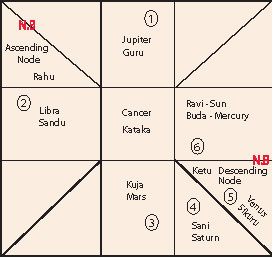
Verse for Vesak that contains a hidden storyThe Buddha’s birth is revealed in a scholarly unlocking of a cryptic poem Riddle poems are an important part of the Sri Lankan literary tradition. These ingenious brain-teasers in poetic form constitute a centuries-old art form, going back as far as the 13th century. The participants would compose riddles on the spot, and these compositions would be analysed, word by word, and then explained. What is interesting is that a fair cross-section of the population took part in these intellectually challenging exercises, suggesting an unusually high level of literary sophistication among the common people of past times. The riddle poem was especially popular in the intellectually alert and active Kotte period. (Unfortunately most of the Kotte-period riddle poems have disappeared as a result of neglect and a gradual lack of usage over the years.) The following Kotte period Gira Sandesa (parrot verse) ditty vividly evokes those times, when people would gather to entertain each other with poems and riddle poems. Samaharu Udara Back in 1954, during a discussion about the doctrinal riddle poems of the “Daham – Gata – Malava”, composed by the scholar monk, Ven. Vidagama Maha Maithreya Thera, the most Ven. Palane Siri Vajiranana Maha Nayaka Thera told me that the monk and poet composed dozens of riddle poems anonymously, many of which have been handed down from generation to generation. The scholar monk pointed out that distortion was unavoidable when poems and riddle poems were passed on through repetition by oral tradition, and that scholars had to tread cautiously when elucidating these riddle poems. He then quoted the following poem, which refers in cryptic form to the Buddha’s birth: (1.) Guruhami gosin vatuna kakulu gule I give below a translation of each verse, followed by an explanation. Here is a reading of the poem, explaining each verse in astrological terms: To understand and appreciate the poem and its references, you should be aware of the Zodiacal signs and their significance as planetary symbols: Aries (ram); Taurus (bull); Gemini (twins); Cancer (crab); Leo (lion); Virgo (virgin); Libra (balancing scales); Scorpio (scorpion); Sagittarius (archer); Capricorn (goat); Aquarius (water-bearer), and Pisces (fish).
I would like to call the reader’s attention to the poetic and linguistic values contained in the verses. In the first line, “Guruhami” refers to a Hindu mendicant, teacher, or preceptor. Guru, also known as Amara Guru, is the preceptor of the immortals. The planet Jupiter is also known as Brahaspathi, because it was discovered by the Amara Guru. Cancer (crab) is the smallest, least noticeable element in the Zodiac constellation, lying between Gemini and Leo. In the second line, the Moon is presented as a male body, Handahami. This may be because the Moon is the most important of the celestial bodies. The calendar is largely based on the moon and its phases (the movement of the tides is determined by lunar influence). Libra (balancing scales) is the seventh sign of the Zodiac. It is a small Zodiacal constellation in the southern hemisphere, lying between Virgo and Scorpio. In the third line, “Rathu hami” refers to the red planet Mars. Here the “Rathu hami” is presented as an aggressive, rowing type. The words “dabara kara-kara” are appropriate here, because Mars is the Roman god of war. It is in the asterism of Capricorn, the Zodiacal constellation lying between Sagittarius and Aquarius. The figure in the sign of Capricorn has the forelegs of a goat and the tail of a fish. In the fourth line, “Kalu hami” refers to Saturn. The adjective “kalu” or black refers to the black arts or black-magic. According to astrology, Saturn produces a cold, gloomy temperament, and by extension signifies life’s less pleasant realities. The word “nondi”, meaning limping (walking with an uneven step), may suggest the ring system of Buddhism, the ever-changing circle of cause and effect. The asterism of Aquarius refers to the Water-bearer. His place is indicated by an ancient poet: “Down from Vega cast your glance across the Dolphin’s space; then just as far again you will find the Water-bearer’s place.” In the fifth line, “Manamalaya” implies “Sikuru” or the planet Venus, also the Roman goddess of love. Venus stands for sexual love, amorous desires and related influences. It is an asterism of Pisces and does not contain any bright stars. It lies between Aquarius and Aries. In the sixth line, “Nanawathi” and “Dines” signify “Buda” and “Iru”, namely Mercury and the Sun. The Sun suggests a wise, learned one, and the Sanskrit “Budh” suggests awareness, thinking power, inspiration, restraint, etc. Mercury is the Roman god of skill, eloquence and theft. He is the son of Zeus and Atlas, and is said to be graceful and swift of foot. The Sun is the source of all energy, a colossal display of solar energy, through which all life on earth is possible. Its light and heat keeps the earth warm, gives life and helps living things to grow. |
|
||||||
|| Front
Page | News | Editorial | Columns | Sports | Plus | Financial
Times | International | Mirror | TV
Times | Funday
Times || |
| |
Reproduction of articles permitted when used without any alterations to contents and a link to the source page.
|
© Copyright
2008 | Wijeya
Newspapers Ltd.Colombo. Sri Lanka. All Rights Reserved. |
